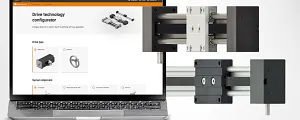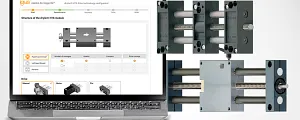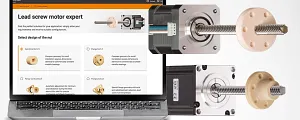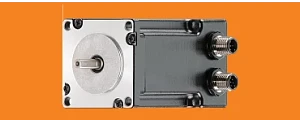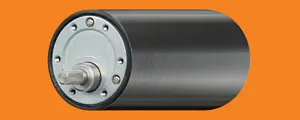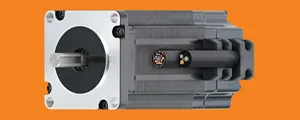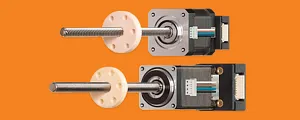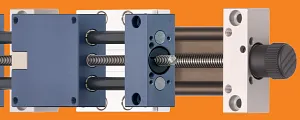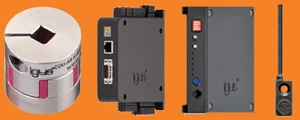Change Language :

Stepper Motors, DC Motors & Brushless DC Motors
igus® offers a wide range of electric motors for linear actuators and automation solutions, including DC, brushless DC (EC/BLDC), and stepper motors. Our stepper motors are available in several different sizes and can be extended with encoders and brakes, our DC motors are quiet and cost-effective with the option for battery operation, and our brushless DC motors are ideal for fast, powerful movements. We also offer spindle motors, which consist of a stepper motor with a hollow shaft where a spindle is inserted. These motors are ideal for applications with high axial loads that would otherwise damage a standard stepper motor.
drylin® electric motors can be easily paired with drylin® linear actuators to create an electric linear system that can operate under harsh conditions thanks to motor selections that include IP65 and IP68-rated variants. With a stepper motor from igus®, you can design a complete solution for your system or process.
Configure a Custom Design with a Motor
Browse stepper (NEMA), DC, Brushless DC (EC/BLDC) motors & more!
FAQ: Frequently Asked Questions
A: DC motors are cost-effective, easy to control and can be operated with just one battery, for example. Stepper motors enable precise positioning without feedback. These types of motors have a high and full torque at standstill. Brushless DC motors (EC/BLDC) offer high efficiency, long service life and require no maintenance. In general, EC/BLDC motors can be used for dynamic and higher speeds.
A: DC motors have a comparatively shorter service life of roughly 3,000 operating hours due to wear on the brushes and commutator. Stepper motors are much more robust and brushless, allowing them to achieve a service life of up to 20,000 operating hours. Brushless DC motors offer a similar service life, as they are also brushless and show little mechanical wear and tear.
A: DC motors are simple electric motors operated with direct current (DC) voltages, allowing them to be operated with basic batteries and making them a particularly cost-effective option. However, the disadvantage of DC motors without motor control is that they do not switch off automatically when the torque increases, but instead draw more current until they come to a standstill. If a blockage is permanently present the motor could become thermally defective. Typical applications of DC motors include electric toothbrushes, children’s toys, and fans. However, they are also used in cars as drives for windshield wipers or seat adjusters.
A: The stepper motors offered by igus® — hybrid stepper motors — combine the advantages of both permanent magnet stepper motors and reluctance stepper motors. Hybrid stepper motors can apply high torque at a standstill and have a precise step angle. The disadvantage of a stepper motor is the high energy requirement, as they always operate at maximum current. However, this can be counteracted by using a rotary encoder and closed loop. Hybrid stepper motors are primarily used for industrial positioning tasks that require precise motion control.
A: The primary advantage of an brushless DC motor is the lack of carbon brushes, making them maintenance-free and allowing them to achieve a significantly longer service life than brushed motors. However, this comes at a higher cost relative to stepper and DC motors. Typical areas of application include actuators, robotic joints, and pick and place applications.
A: To choose the right motor, you should know the desired torque, speed, and duty cycle of the application. If you have a simple and non-accurate movement, a DC motor could be the right choice. For high-precision, a stepper motor is a good option. And for dynamic movements, a brushless DC motor will perform well. igus® offers an online tool to assist in motor selection as well.
A: igus® offers motor controls for stepper, DC and brushless DC motors. With the D1, all motors from igus® and motors from other manufacturers can be controlled. For DC motors, the D3 and D5 controllers are ideal. Finally, the D7, D8 and D9 can all be used to control stepper motors.
A: igus® offers motor accessories such as connection cables, power supply units, gearboxes, control units, proximity switches, and more.
Browse the Engineer's Toolbox
Contact Us
Questions or product information? Please contact:

Customer Service
Customer Service:
Phone: Monday to Friday from 8 am - 8 pm
LiveChat: 24 hours
Book a Call
Book an Appointment with a Product Expert
